Before the Storm (78 page)
Authors: Rick Perlstein

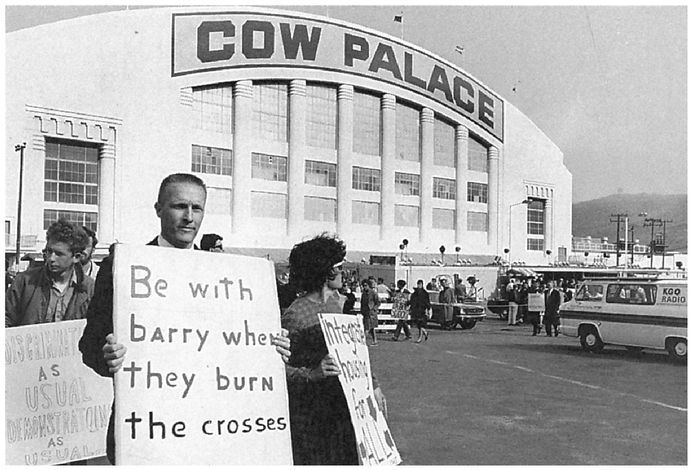
Goldwater beat William Scranton in San Francisco at a Republican National Convention the left many television viewers with enduring images of a party that seemed to have been cap tured by a violent fringeâan image bolstered by the civil rights protesters who flooded th city (above and bottom left). In Atlantic City, at the Democratic Convention, Lyndon Johnso was brought to the verge of withdrawing by his fears that the dispute between Fannie Lo Hamer's Mississippi Freedom Democratic Party and Mississippi's racist regular Democrats-whoboycotted the convention (bottom right) and favored Barry Goldwaterâportended th nation's cracking in two.
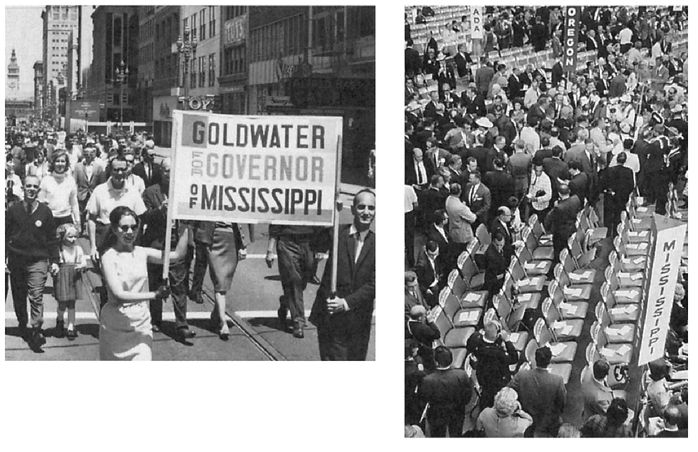
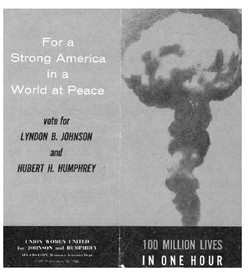
WHICH SHALL IT BE?
“We Americans knowâalthough others appear to forgetâthe risk of spreading conflict. We still seek no wider war.”
-Pres. Lyndon B. Johnson
August 4, 1964
August 4, 1964
“That word âbrinkmanship' is a great word.” - Sen. Barry Goldwater
March 5, 1964.
VOTE FOR JOHSON/ HUMPHREY ON NOV. 3
rd
rd
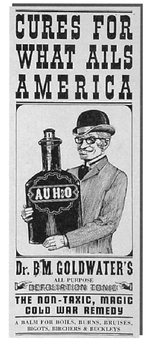
Democratic campaign literature trumpeted Johnson as the candidate of peace, even though the White House had already made plans to begin a bombing campaign in North Vietnam. LBJ's supporters publishedliterature that depicted Goldwater as, for instance,a snake oil salesman (left). Goldwater's officialcampaign published dry pamphlets excerpting dry Goldwater speeches, but his freelance supporters produced such pieces as a fan depicting the Republicanelephant crushing the Democratic donkey to death (opposite, top).
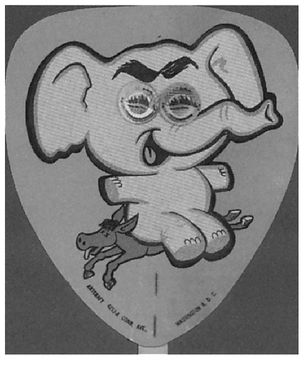
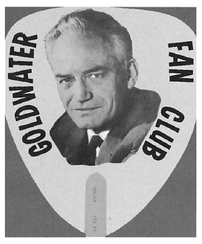
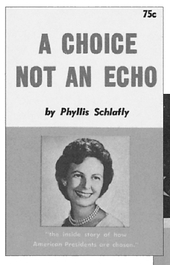
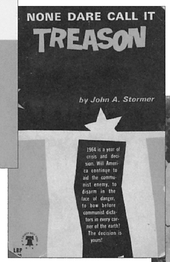
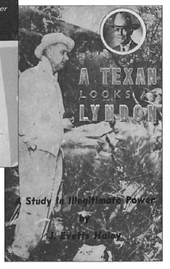
The Goldwater campaign gave birth to enormous coordinatednetworks of conservative activists outside official Republican Party channels. They distributed seventeen million copies of books by Phyllis Schlafly, John A. Stormer, and J. Evetts Haley, often for free.
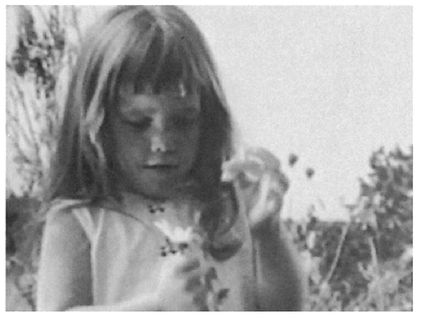
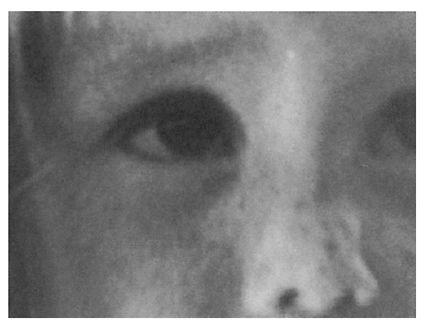
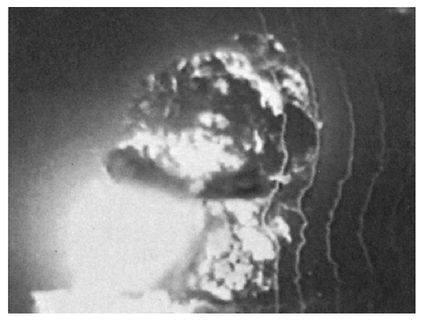
The 1964 presidential campaign came to be dominated by images of anxiety and insecurity in a fast-changingworld. This page: LyndonJohnson's advertising agency, years ahead of its competitors in media sophistication, sought to frighten viewers with the famous “Daisy” commercial, which never mentioned Barry Goldwater by name. Opposite page: Lyndon Johnson was soon being heralded, just as he desired, as a healer of all division. Goldwater's main campaignorganization produced timid (and racially neutral) commercials that attempted, unsuccessfully,to do the same thing for the Republicans. More successful were the pamphlets put out by a campaign satellite run by F. Clifton White of Citizens for Goldwater-Miller, which exploitedfears of racial violence in a manner similar to the way the Johnson campaign utilized fears of nuclear war, and homemade yard signs of supporters.
Other books
Compulsion: Magnetic Desires by Misti Murphy
Around the World in 80 Men Boxed Set 31-35 by Rebecca Ratliff
What Casanova Told Me by Susan Swan
Return of the Highlander by Julianne MacLean
Angel in Chains by Cynthia Eden
Gone With the Wolf by Kristin Miller
Rhyannon Byrd - Primal Instinct 05 by Touch of Surrender
Finally Dead (Eve Benson: Vampire Book 1) by P. S. Power
Soldiers in Hiding by Richard Wiley